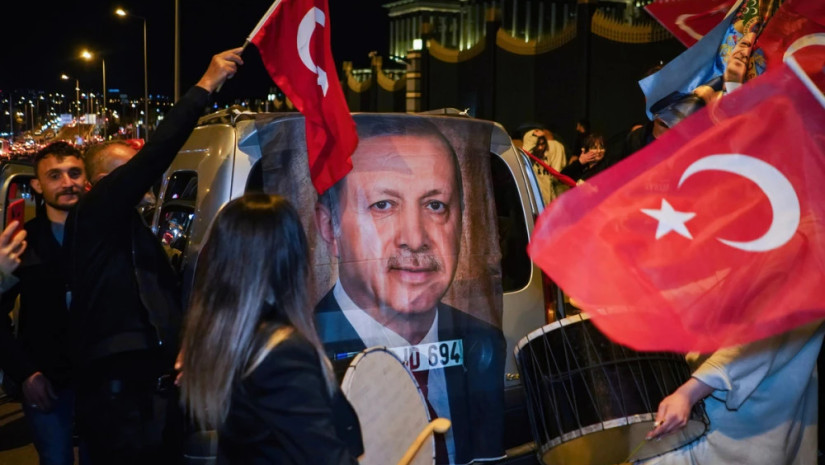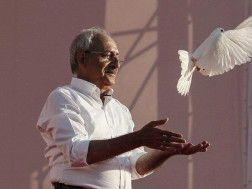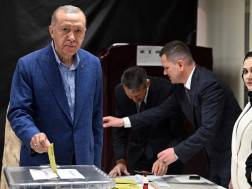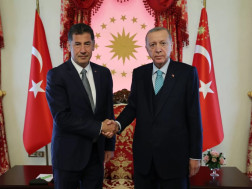Take Recep Tayyip Erdogan, in Turkey, who has been in power for two decades—and has just won another general election. According to the World Economic Outlook by International Monetary Fund (IMF) in April 2022, which ranks countries by GDP, Turkey's economy ranked 23rd globally last year, and Turkey is expected to enter the top 10 in the coming years.
The Istanbul Türkiye stock market trades at 3.5 times forward earnings but the Turkish lira weakness could make this investment market the new Weimar Republic on the Bosporus. The question for global investors is whether Türkiye is indeed a tiger economy on the Bosporus on the verge of energy and economic independence or the new WEIMAR on the Bosporus. Economists forecast 2.7% growth for this year and 3% GDP growth for 2024.
The eve of the election the TRY trades around 20 levels to the U.S. dollar and the BIST 100 index, according to Bloomberg data is the 2nd worst performing stock market in the world.
The so-called “consensus” view on Turkish assets and a possible election win by Mr. Erdogan has been negative. Current consensus on Türkiye is/ was:
“With very high inflation, very low interest rates, and no net foreign reserves, a painful crisis affecting all assets in Türkiye could be on the way.”
According to some observers and western bank’s research views; Erdogan's bizarre economic experiment has led to a 90% free fall in the Turkish lira, $200 billion vaporised in futile FX intervention and exodus of $150 billion from Istanbul stock/bond markets by global investors.
Smart investors and family office clients remember that big bank consensus view at times can be wrong.
Recep Tayyip Erdogan won a presidential runoff election on Sunday, extending his time as the nation’s longest-serving leader in a tenure that has increasingly alienated foreign investors.
Wall Street analysts see more weakness ahead, with Morgan Stanley warning it may slide 29% toward 28 per dollar by the end of the year should Erdogan decline to change course. Wells Fargo & Co. expects the currency to hit 23 by the end of the quarter.
Turkey, the country that Mustafa Kemal Atatürk, or Mustafa Kemal Pasha founded on October 29, 1923, has always been a good training ground for traders and investors due to its dynamic capital market and rather volatile currency TRY Turkish Lira.
In 2023 the country run by Mr. Erdogan officially changed its name to Türkiye at the United Nations.
Turkey has been spelled and pronounced Türkiye (Tur-kee-yeah) in Turkish since the country became a republic in 1923.
The country began a push for the rest of the world to adopt the same spelling and pronunciation in 2021. Last year, the country became known as Türkiye to the United Nations.
While English speakers have historically referred to the country as Turkey, it has been spelled and pronounced Türkiye (Tur-kee-yeah) in Turkish since the establishment of the modern Turkish republic in 1923.
The country began a push for the wider world to adopt the same spelling and pronunciation in 2021.
Foreign Minister Cavuşoğlu said in a tweet that the move would "increase our country's brand value".
Turkey's nominal GDP peaked at $1.029 trillion in 2023, while its nominal GDP per capita peaked at $12,489 in 2013.
As any frequent travel might attest to, similar to SIA singapore airlines in the 1970s and 1980s, TK Turkish Airlines contributed to building turkey’s brand. Today, the Turkish Airlines business class at IST airport is most probably the best business class lounge in the world.
Last five-year Turkish airlines share price performance + 755% versus Germany’s Lufthansa -45.2%% and Singapore’s SIA -21.97%
Before the first round of voting, two weeks ago, it was common to read analysis (and polls) suggesting that Mr. Erdogan faced a real chance of losing power to an energised and united opposition. After 20 years in power Mr. Erdogan will rule the country for another 5 years and investors will vote with their money if or whether Türkiye will indeed become the new Weimar on the Bosporus or the new tiger economy on the Bosporus.
The important question for Mr. Erdogan and global markets is whether the country can break the cycle of current account deficit and high interest rates while maintaining investor confidence. Let the markets guide us, whether Türkiye can overcome current market pessimism and be on the verge of energy and economic independence during the next five years of Mr. Erdogan’s rule.
Rainer Michael Preiss is Partner & Portfolio Strategist at Das Family Office in Singapore.
















